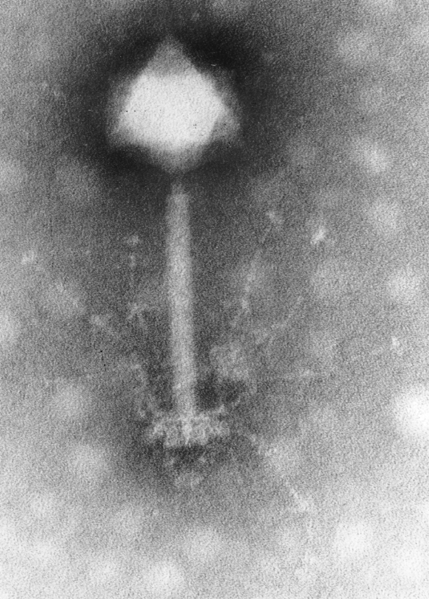-
 Clausius postulate
Clausius postulate
-
 Clostridium botulinum
Clostridium botulinum
-
 Phase transition
Phase transition
-
 Melanocyte
Melanocyte
-
 Biotope
Biotope
-
 Vital capacity
Vital capacity
-
 Recessive
Recessive
-
 Multi-processor
Multi-processor
-
 Analogue
Analogue
-
 Legionella
Legionella
-
 Metagenome
Metagenome
-
 Increment
Increment
-
 Teraflops
Teraflops
-
 Heterolysis
Heterolysis
-
 Enomoto
Enomoto
-
 Manning
Manning
-
 Invariant
Invariant
-
 Stolon
Stolon
-
 Anthrax bacillus
Anthrax bacillus
-
 Orthorhombic system
Orthorhombic system
-
 Lagrangian point
Lagrangian point
-
 Cerebrovascular accident
Cerebrovascular accident
-
 Mineralogical class
Mineralogical class
-
 SIP
SIP
-
 Biogeography
Biogeography
-
 Denervation
Denervation
-
 Dunite
Dunite
-
 Bufotenine
Bufotenine
-
 Flag
Flag
-
 Oxy-fuel combustion
Oxy-fuel combustion
Prophage
Prophage is the form of the bacteriophage when it is inserted into the genome of the infected bacterium.
Then it is referred to as a lysogenic virus, as opposed to a lytic virus which replicates and kills the cells. The same bacteriophage may be found in either form.
In the prophage form, the virus is not virulent but expresses its own genes through the host's cell machinery.
It can remain in this form for as long as the bacterium is not stressed. The phage can even be transmitted to the descendants of the bacterium simply through duplication of its genome (and the genome of the virus) during cellular replication.
 Bacteriophages such as the S-PM2 phage here seen under electron microscopy can insert themselves into the bacterial genome as a prophage. © Plos / Licence Creative Commons
Bacteriophages such as the S-PM2 phage here seen under electron microscopy can insert themselves into the bacterial genome as a prophage. © Plos / Licence Creative Commons
Latest
Fill out my online form.



